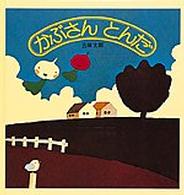- ホーム
- > 洋書
- > 英文書
- > Science / Mathematics
Full Description
Surrogacy is the commissioning of a woman to gestate and give birth to a child for another would-be parent. The practice raises several ethical questions, such as the commodification of the surrogate and of the baby, and the exploitation of the surrogate, issues which have been extensively debated. This book offers a fresh take on surrogacy, by concentrating on questions which bear on its justifiability: Is providing gestational services a permissible way of employing a woman's body? Indeed, is it a legitimate form of work? Are the children born out of surrogacy in any way wronged by surrogacy agreements?
In the first part of the book, Christine Straehle proposes an account of surrogacy work as legitimate work for women, as a way to realize certain goals in women's lives through the fruit of their labour. She defends a right to become a surrogate as necessary to protect women's autonomy. Anca Gheaus criticises surrogacy by arguing that it always wrongs children--whether or not it also harms them--by disrespecting them; therefore, gestational services are impermissible. In the second part, Straehle responds to Gheaus, questioning that children are wronged by the practice of surrogacy. Instead, she defends an intentional model of parental rights, which indicates that having a child through surrogacy should count as a ground to assign parental rights. In her response, Gheaus objects that Straehle's view fails to properly account for the interests of either surrogates or children. However, she accepts that women may gestate without the intention to have custody over the newborn, and is therefore open to some kind of post-surrogacy practice that would radically depart, in the allocation of legal parenthood, from any historical or currently proposed form of surrogacy.
Contents
Introduction, Anca Gheaus and Christine Straehle
Surrogacy defined
Surrogacy and The Law
Ethical Worries Surrounding Surrogacy
The Book
Part One:
Defending Surrogacy as Reproductive Labour, Christine Straehle
Introduction
I. Surrogacy and Free Occupational Choice
I.1. Why is freedom of occupational choice important in liberal theory?
I.2. Two Justifications for the Right to Freedom of Occupational Choice
II. Surrogacy, Autonomy and Individual Agency
II.1. Reasons for Limits: Harm to Self, Harm to Society and Professionalization
II. 2. Surrogacy and the Limits of Freedom of Professional Choice
III. Surrogacy, Commercialization, Reproduction and Parenting
III.1. Surrogacy as Commercialization vs Surrogacy as Parenting
III.2. Surrogacy and gendered society
III.3. Surrogacy as Harm to Society: applying market norms to the family sphere
IV. Surrogacy As Work
IV.1. Professional requirements and justifiable limits
IV. 2. Surrogacy as licensed work
Conclusion
Notes
Against Private Surrogacy: A Child-Centered View, Anca Gheaus
I. Introduction
II. The intuitive case against surrogacy
III. Parents, their rights, and the interests of children
III.1. General assumptions
III.2. The right to become a parent
III.3. Parents' rights and children's interests
III. 4. Two caveats
IV. What is surrogacy? Three models
IV.1. The child-trafficking model
IV.2. The privately arranged adoption model
IV.3. The provision of services and gametes model
V. Full Surrogacy with intending parents' gametes
V.1. Child-centered appeals to genetic connections and the right to parent
V.3. Appeals to the gestational connection
V.4. Creatures of attachment: the general impermissibility of surrogacy agreements
VI. Harm to children? The challenge from the non-identity problem
VII. Conclusion: a respectful and humane form of surrogacy
Notes
Part Two
What's in it for the Baby? - Weighing Children's and Parents' Interests in Commercial Surrogacy Agreements - A Reply to Gheaus, Christine Straehle
I. Introduction
II. Where we agree: The interests of children
III. Where we disagree: Relationships
IV. Where we disagree: the role of the state
Conclusion
Notes
Women and Children First - A Reply to Straehle, Anca Gheaus
I. Introduction
II. Where we agree: gestating for another
III. Where we disagree: the women
IV. Where we disagree: the children
V. Is Straehle's hybrid defence of surrogacy stable?
Conclusions
Notes
Index







